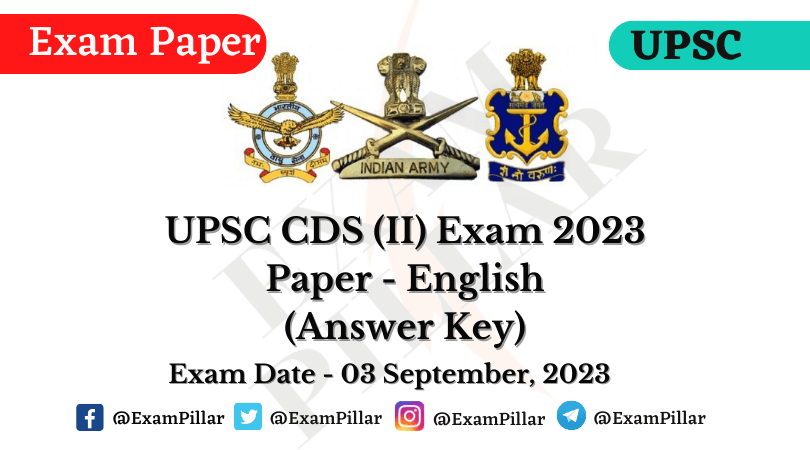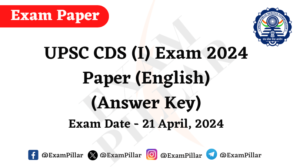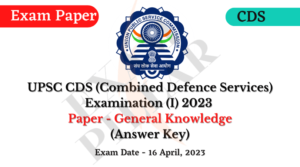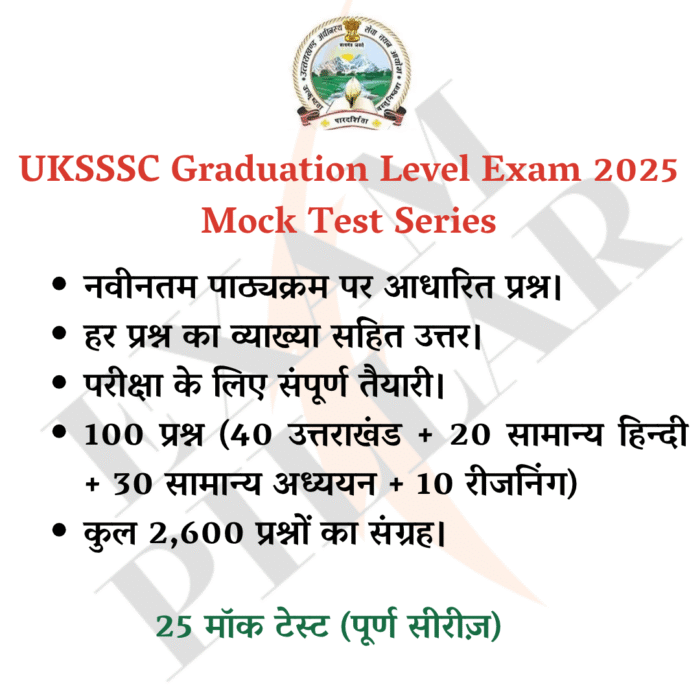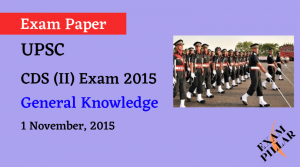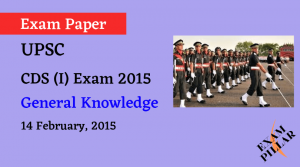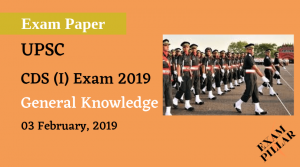COMPLETION OF SENTENCE
Directions: In this section, each sentence is incomplete and is followed by four options. Select one of the four options to complete the sentence.
41. He is diligent; therefore ________
(a) he will not succeed
(b) he can’t succeed
(c) he will succeed
(d) he succeed
Show Answer/Hide
42. A bomb went off in the city centre, but fortunately ________
(a) only few hurt
(b) somebody was hurt
(c) nobody was hurt
(d) everybody was hurt
Show Answer/Hide
43. Each of the scholars ________
(a) have done well
(b) has done well
(c) shall done well
(d) will done well
Show Answer/Hide
44. He asked whether either of the brothers ________
(a) were at home
(b) are at home
(c) was at home
(d) have come home
Show Answer/Hide
45. One cannot be too careful of ________
(a) his good name
(b) their good name
(c) whether good name
(d) one’s good name
Show Answer/Hide
46. The applicant is the native of this country, so he has the right ________
(a) to have vote
(b) to vote
(c) of vote
(d) at vote
Show Answer/Hide
47. No sooner had he returned ________
(a) than he was off again
(b) but he was off again
(c) therefore went away
(d) thence went away
Show Answer/Hide
48. Fortunately the news ________
(a) wasn’t as bad as we expected
(b) weren’t as bad as we expected
(c) couldn’t as bad as we expected
(d) happened with as bad as we expected
Show Answer/Hide
49. When I was on holiday, ________
(a) my whole luggage were stolen
(b) my part luggage was stolen
(c) all my luggage was stolen
(d) my some luggage was stolen
Show Answer/Hide
50. I got up very early, ________
(a) but Jack got up much before
(b) but Jack got up even before
(c) but Jack got up earlier to me
(d) but Jack got up even earlier
Show Answer/Hide
COMPREHENSION
Directions: In this section you have TWO short passages. After each passage, you will find some items based on the passage. First, read a passage and answer the items based on it. You are required to select your answers based on the contents of the passage and the opinion of the author only.
Passage – I
What is truth? said jesting Pilate, and would not stay for an answer. Certainly there be, that delight in giddiness, and count it a bondage to fix a belief; affecting free-will in thinking, as well as in acting. And though the sects of philosophers of that kind be gone, yet there remain certain discoursing wits, which are of the same veins, though there be not so much blood in them, as was in those of the ancients. But it is not only the difficulty and labour, which men take in finding out of truth, nor again, that when it is found, it imposeth upon man’s thoughts, that doth bring lies in favour; but a natural though corrupt love of the lie itself. One of the later school of the Grecians, examineth matter, and is at a stand to think what should be in it, that men should love lies; where neither they make for pleasure as with poets, nor for advantage, as with the merchants; but for the lie’s sake. But I cannot tell; this same truth, is a naked, and open day-light, that doth not show the masks, and mummeries, and triumphs, of the world, half so stately and daintily as candle- lights. Truth may perhaps come to the price of a pearl, that showeth best by day; but it will not rise to the price of a diamond, or carbuncle, that showeth best in varied lights. A mixture of a lie doth ever add pleasure. Doth any man doubt, that if there were taken out of men’s minds, vain opinions, flattering hopes, false valuations, imaginations as one would, and the like, but it would leave the minds, of a number of men, poor shrunken things, full of melancholy and indisposition, and unpleasing to themselves?
51. What is the writers’ idea of ‘truth’ in the paragraph?
(a) Truth and divinity go hand-in- hand
(b) Truth can be told and avoided conveniently
(c) Truth is a compulsion sometimes
(d) Truth may be a choice of ancient Grecians
Show Answer/Hide
52. Why do men love lies?
(a) For advantage
(b) For the love of lying
(c) For the sake of lies
(d) A lie is imaginative
Show Answer/Hide
53. Which metaphor is used in the passage to compare the value of truth and lies?
(a) Pearls versus diamonds
(b) Beauty versus plain unadorned, truth
(c) Ease versus difficulty
(d) Deception versus sincerity
Show Answer/Hide
54. What literary device does the author use when he says, “truth is naked” ?
(a) symbolism
(b) personification
(c) allegory
(d) paradox
Show Answer/Hide
55. What would happen if truths were not mixed with lies?
(a) There would not be any pleasure in the pursuit of truth
(b) Truth would be clear and un- diluted
(c) Lies would no longer be necessary
(d) The beauty of truth would shine forth
Show Answer/Hide
Passage – II
The ‘law’ is an enterprise that seeks to rule us all from cradle to the grave, whether as constitution confronting custom, or as custom confronting constitution, and often indeed as the diverse combinatory prowess of both. The very notion of enterprise suggests risk- taking i.e., risk as a site for both opportunity as well as failure for regulation or felicitation of approved social conduct. At the same moment, this coupling of the constitutional and custom is at the outset designed to pluralise the notion of legal literacy, a message yet to be fully constructed and conveyed co-equally to those who govern us and those who would resist domination. As citizens, we are supposed to know the law made by the state, whether we intend to obey it or break it. As members of cultural and religious communities, we also need to know the norms that define our membership of these collectives. Often, our identity and obligations as members of a political society and of diverse memberships within cultural and religious communities constitute spheres of peaceful coexistence. Often, too these collide. To decide what obligations ought to have precedence, each one of us in collision situations has to know a great deal about the law of the state and that constituting community and identity other than the political. Literacy in state law is important but never enough for an understanding of multiple sources of obligations that constantly press upon us. This invites engagement with many difficult questions including what we may want to mean by literacy, law, domination, and resistance. Further, the question always is: how far do resources of legal literacy endow us with resources of justice for all and care of self and care for others?
56. According to the author, legal literacy
(a) needs to be interpreted and understood in consonance with elements of social custom and justice
(b) needs to be interpreted and understood in consonance with elements of economic and psycho- logical factors and law
(c) needs to be interpreted and understood in terms of unjust existence of human being and justice
(d) needs to be interpreted and under- stood in consonance with elements of environmental conservation and law
Show Answer/Hide
57. As a citizen one is supposed to
(a) make a balance between the legal aspects and cultural existence
(b) give a priority to our cultural existence.
(c) give a priority to constitutional provisions.
(d) know that knowledge about constitutional regulation is an impedi- ment to cultural existence.
Show Answer/Hide
58. The above passage deals in
(a) Law and Justice
(b) Legal Literacy
(c) Literacy and Education
(d) Constitutional Law
Show Answer/Hide
59. According to the writer ‘diverse combinatory prowess’ means
(a) A process of evolving a legal and constitutional system of cohesive elements.
(b) A provision of evolving a law of customary practices by avoiding constitutional provisions
(c) A provision of evolving constitutional laws by neglecting custom- ary practices
(d) A process of combining con- trasting elements into a competent legal mechanism
Show Answer/Hide
60. Which among the following is closest in meaning to the word ‘resistance’?
(a) conforming
(b) promotion
(c) defiance
(d) liberating
Show Answer/Hide

